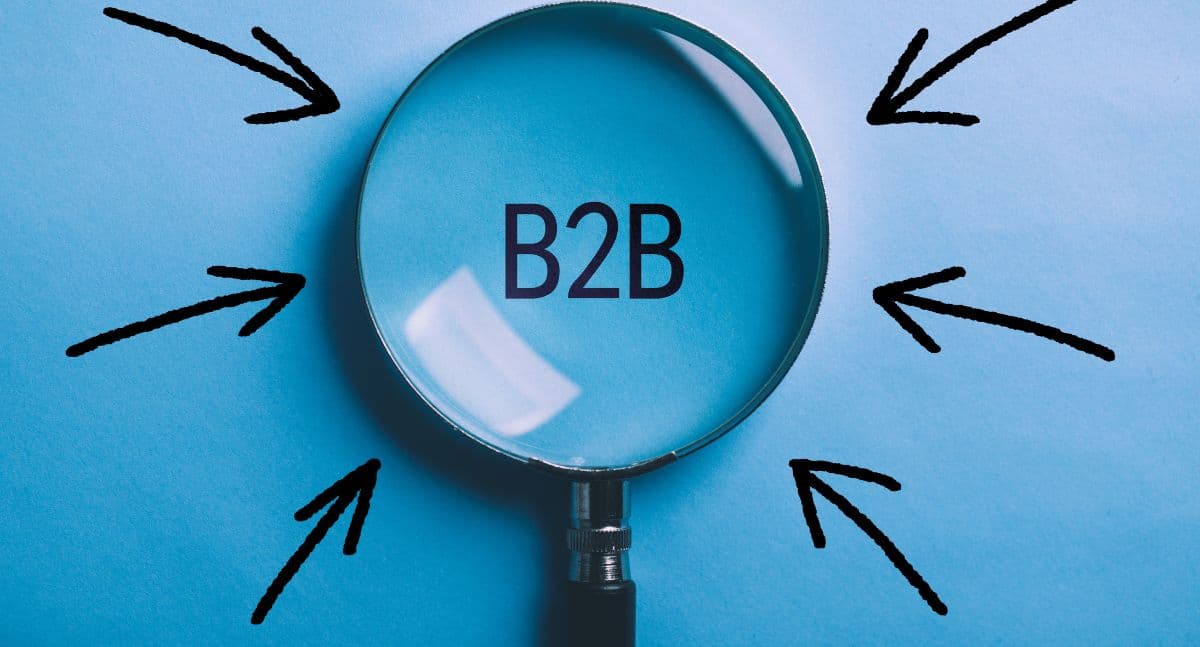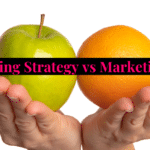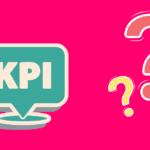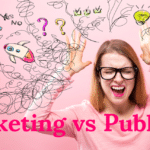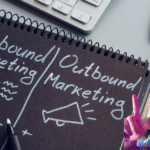In the world of business, the term “B2B marketing” is often thrown around. But what exactly does it mean?
B2B, which stands for “business-to-business,” is a marketing approach that focuses on promoting products and services to other businesses rather than individual consumers.
From lead generation to nurturing long-term partnerships, B2B marketing strategies are tailored to a business audience’s specific needs and preferences.
Let’s dive into the intricacies of B2B marketing, exploring its core concepts, strategies, and best practices.
Understanding B2B Marketing

Before we delve into the nitty-gritty of B2B marketing, it’s important to establish a clear understanding of its scope and purpose.
Simply put, B2B marketing refers to the strategies and tactics used by companies to promote their products or services to other businesses rather than individual consumers. That’s it.
Sure, it might sound a little mysterious, but it really isn’t
This specialized form of marketing is distinctly different from business-to-consumer (B2C) marketing, as the target audience, buying process, and overall objectives are tailored to the unique dynamics of business transactions.
Let’s have a look into the differences between B2B and B2C
B2B vs. B2C Marketing

At its core, B2B marketing is about establishing and nurturing relationships with other businesses to drive sales and foster long-term partnerships.
It involves a deep understanding of the needs and pain points of business buyers, as well as a focus on providing value and solutions that address those specific needs.
In contrast, B2C marketing is primarily concerned with appealing to individual consumers’ emotions, desires, and purchasing behaviors.
While B2C marketing often relies on mass communication and branding to create broad appeal, B2B marketing typically involves more targeted, personalized, and data-driven approaches.
Want to look into the comparison in further detail, we wrote about it here.
The Role of B2B Marketing in Business

Now that we’ve clearly defined B2B marketing, let’s explore its role in the broader business landscape.
From lead generation to sales enablement, B2B marketing is critical at various stages of the buyer’s journey.
1. Lead Generation

Lead generation is the process of identifying and attracting potential customers who have expressed interest in a company’s products or services. This is typically achieved through a combination of inbound and outbound marketing strategies.
Common lead-generation tactics include:
- Content marketing to educate and inform potential customers about industry trends, best practices, and the company’s offerings
- Search engine optimization (SEO) to improve the company’s visibility in online search results
- Email marketing to nurture relationships with leads and provide them with relevant content
- Social media marketing to engage with potential customers and share valuable resources
Lead generation is a crucial aspect of B2B marketing, as it ensures a steady flow of qualified prospects for the sales team to engage with.
Now, let’s explore ABM.
2. Account-Based Marketing (ABM)

Account-based marketing is a strategic approach that involves targeting specific high-value accounts and tailoring marketing efforts to meet the unique needs of those accounts.
ABM is especially prevalent in B2B marketing, focusing on building strong, long-term relationships with key decision-makers within a target organization.
ABM is typically a multi-step process that includes:
- Identifying target accounts that align with the company’s ideal customer profile
- Researching and understanding the needs, challenges, and goals of the key stakeholders within those accounts
- Developing personalized marketing messages and content that speak directly to the pain points and objectives of the target accounts
- Implementing targeted marketing campaigns across various channels to reach and engage with the identified stakeholders
- Analyzing and measuring the impact of the ABM campaigns to optimize future efforts
Overall, account-based marketing is an effective strategy for B2B companies that are focused on selling to specific industries, large organizations, or niche markets.
3. Sales Enablement

B2B marketing doesn’t stop at lead generation. It also plays a crucial role in enabling the sales team to close deals and drive revenue.
This aspect of marketing, known as sales enablement, involves providing sales professionals with the tools, resources, and information they need to engage with potential customers effectively.
Key components of sales enablement in a B2B context include:
- Developing sales collateral, such as product brochures, case studies, and whitepapers, that provide in-depth information about the company’s offerings
- Creating sales playbooks that outline the best practices, messaging, and strategies for selling to different types of customers
- Providing training and ongoing education to sales teams to ensure they are equipped with the latest product knowledge and sales techniques
- Implementing a customer relationship management (CRM) system to track customer interactions and identify opportunities for upselling, cross-selling, and renewals
Overall, sales enablement is a collaborative effort between the marketing and sales teams, to align their efforts to drive revenue and foster customer satisfaction.
Ok, now it’s time to roll up your sleeves.
Let’s talk strategy before looking at some awesome real-world examples.
3 Imoportant B2B Marketing Strategies
Now that we’ve covered the fundamentals of B2B marketing, let’s explore some key strategies companies can employ to succeed in this competitive landscape.
From content marketing to account-based marketing, a variety of approaches can be utilized to reach and engage business customers effectively.
Let’s start with the King “Content Marketing.”
1. Content Marketing

Content marketing is a cornerstone of B2B marketing, as it focuses on creating and distributing valuable, relevant, and consistent content to attract and retain a clearly defined audience.
Content marketing aims to drive profitable customer action by providing information that addresses potential buyers’ needs and pain points.
In the B2B context, content marketing takes many forms, including:
- Blog posts that educate and inform potential customers about industry trends, best practices, and the company’s offerings
- Whitepapers and case studies that provide in-depth analysis and real-world examples of how the company’s products or services can solve specific business challenges
- Infographics that present complex data and information in a visually engaging format
- Webinars and online events that offer interactive learning experiences and opportunities for engagement
- Video content that showcases product demonstrations, customer testimonials, and thought leadership
Each industry will have different types of content that work better than others. It’s about researching what works, monitoring your metrics, and scaling what works.
Sounds easy? Well, it ain’t, and I’m sure you know that.
Now, let’s look into ABM.
2. Account-Based Marketing

As mentioned earlier, account-based marketing (ABM) is a highly targeted approach that focuses on engaging specific accounts or companies rather than individual leads.
ABM involves aligning sales and marketing efforts to deliver personalized messaging and content to key decision-makers within a target organization.
Key components of a successful ABM strategy include:
- Identifying high-value accounts that are a good fit for the company’s offerings
- Researching and understanding the needs, challenges, and goals of the key stakeholders within those accounts
- Developing personalized marketing messages and content that speak directly to the pain points and objectives of the target accounts
- Implementing targeted marketing campaigns across various channels to reach and engage with the identified stakeholders
- Analyzing and measuring the impact of the ABM campaigns to optimize future efforts
Overall, Account-based marketing is an effective strategy for B2B companies that are focused on selling to specific industries, large organizations, or just about any business.
Now, onto the fun stuff: social media marketing.
3. Social Media Marketing
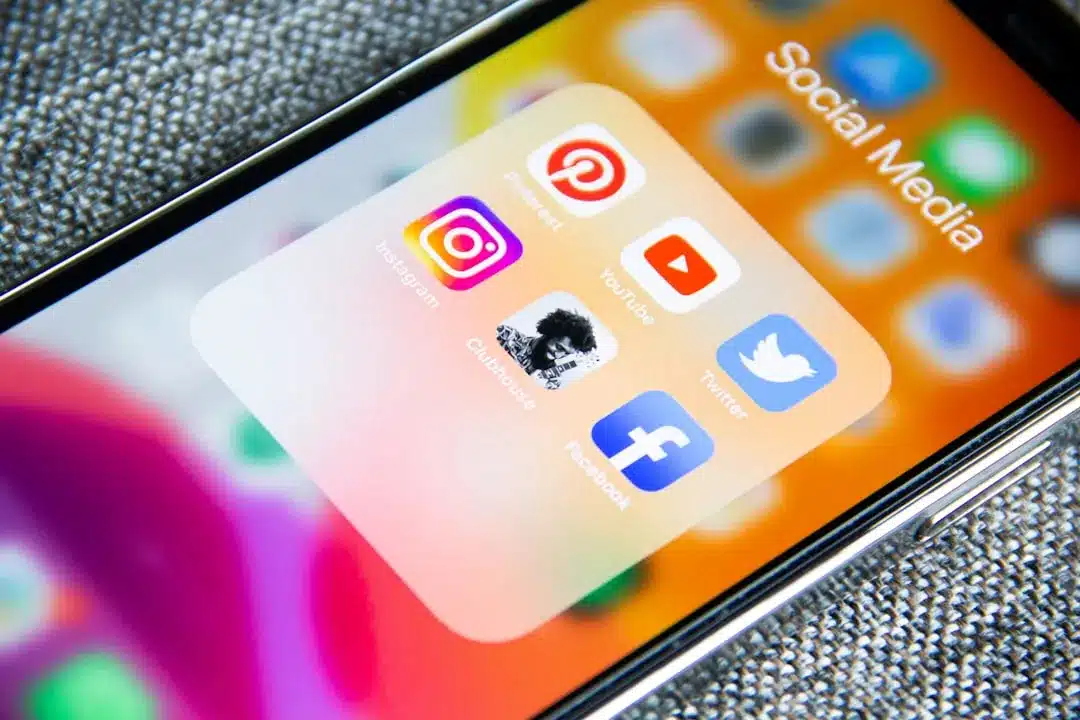
In today’s digital age, social media marketing has become an essential component of any B2B marketing strategy.
While it may seem more aligned with B2C marketing, social media can also be a powerful tool for reaching and engaging with business customers.
Although businesses utilize all social networks, you’ll naturally find LinkedIN has a massive B2B marketing side, which can be annoying and intrusive (my 2 cents).
B2B social media marketing involves:
- Creating a strong presence on professional networking platforms such as LinkedIn, which is a popular hub for business professionals
- Sharing relevant content, including blog posts, industry news, and thought leadership pieces, to establish the company as a trusted authority in its field
- Engaging with potential customers through comments, shares, and direct messages to build relationships and nurture leads
- Leveraging social media advertising to target specific job titles, industries, and company sizes with personalized messages
- Monitoring social media analytics to track the performance of campaigns and make data-driven decisions
While B2B social media marketing may require a more targeted and professional approach compared to its B2C counterpart, it can be an effective way to expand a company’s reach and connect with potential customers more personally and interactively.
Now, let’s talk channels, marketing channels
B2B Marketing Channels
In the digital age, B2B marketing channels have expanded far beyond traditional print media and trade shows. Today, companies have a wide array of digital platforms and tools at their disposal to reach and engage with business customers.
Let’s explore some of the key B2B marketing channels and their unique benefits.
1. Email Marketing

Email marketing is a tried-and-true B2B marketing channel that is a valuable tool for reaching and nurturing business customers.
Email marketing can deliver personalized messages, share valuable content, and drive engagement when done effectively.
Key components of successful B2B email marketing include:
- Segmenting email lists based on industry, company size, job title, and other relevant criteria to ensure messages are tailored to the recipient’s needs
- Utilizing marketing automation tools to send targeted emails at the right time and track customer interactions
- Personalizing email content to make it more relevant and engaging for recipients
- Nurturing leads through automated email sequences that provide valuable information and build trust over time
- Analyzing email performance metrics, such as open rates, click-through rates, and conversions, to optimize future campaigns
2. Search Engine Optimization (SEO)

Search engine optimization (SEO) is a critical B2B marketing channel that focuses on improving a company’s visibility in online search results.
Well, for now, it is, until AI takes over the search results. Kidding. But not.
In the B2B context, SEO helps potential customers find a company’s products or services while actively searching for solutions to their business challenges.
Key aspects of B2B SEO include:
- Conducting keyword research to identify the terms and phrases that potential customers are using in their searches
- Optimizing website content, including product pages, blog posts, and case studies, to include relevant keywords and provide valuable information
- Building high-quality backlinks from reputable websites to demonstrate authority and improve search rankings
- Monitoring and analyzing website performance metrics, such as organic traffic, keyword rankings, and conversion rates, to make data-driven decisions
Remember, SEO is a long-term B2B marketing channel that requires ongoing effort and continuous optimization, but it can yield significant results in terms of driving organic traffic and generating leads.
Lastly, the expensive but potentially highly profitable option.
3. Pay-Per-Click (PPC) Advertising

Pay-per-click (PPC) advertising is a highly targeted B2B marketing channel that allows companies to display ads to potential customers on search engines and other websites.
Unlike traditional advertising, where companies pay a fixed price for ad placement, PPC ads are only charged when a user clicks on the ad.
Key components of B2B PPC advertising include:
- Targetting relevant keywords and creating ad copy that resonates with potential customers
- Setting a budget and bid amount for each keyword to control ad spend
- Utilizing retargeting ads to re-engage with visitors who have previously visited the company’s website
- Monitoring ad performance metrics, such as click-through rates, conversion rates, and cost per acquisition, to optimize campaigns
B2B PPC advertising can be a cost-effective way to reach potential customers actively searching for solutions, allowing for precise targeting and control over ad spend.
But be warned, you need a professional in charge of your ads, as things can get very expensive very quickly!
Now, let’s look ahead.
B2B Marketing Trends and Future

As the B2B marketing landscape continues to evolve, it’s essential for companies to stay ahead of the curve and adapt to emerging trends.
Let’s look at some of the key trends shaping the future of B2B marketing.
1. Personalization
Personalization has become  a central theme in B2B marketing, as companies strive to create more meaningful and relevant customer experiences.
a central theme in B2B marketing, as companies strive to create more meaningful and relevant customer experiences.
From personalized email campaigns to targeted account-based marketing, personalization allows companies to tailor their messages and offerings to their customer’s specific needs and pain points.
Artificial intelligence (AI) and machine learning have further enhanced personalization capabilities, enabling companies to analyze vast amounts of data and deliver highly targeted and individualized experiences.
Companies like Hubspot take personalization to another level.
2. Customer Experience

Customer experience has emerged as a key differentiator in the B2B space.
Companies increasingly focus on providing seamless, intuitive, and enjoyable customer experiences at every touchpoint, from the initial website visit to post-sale support.
This customer-centric approach involves:
- Streamlining the buying process and making it easy for customers to find information and make purchases
- Offering self-service tools and resources that empower customers to solve problems on their own
- Providing proactive and personalized customer support to address issues and prevent churn
- Collecting and analyzing customer feedback to continuously improve the overall experience
A strong focus on customer experience leads to higher satisfaction and loyalty and drives word-of-mouth referrals and positive brand advocacy.
3. Data-Driven Marketing

Data has become the fuel that powers modern B2B marketing strategies.
With the abundance of customer data available, companies leverage advanced analytics and insights to make more informed decisions and optimize their marketing efforts.
Some key aspects of data-driven marketing include:
- Utilizing customer relationship management (CRM) systems to track and analyze customer interactions
- Implementing marketing automation tools to deliver personalized and timely messages
- Using A/B testing to experiment with different marketing strategies and determine the most effective approaches
- Applying predictive analytics to forecast customer behavior and identify potential opportunities
Overall, Data-driven marketing leads to more efficient and effective campaigns and allows for continuous improvement and optimization based on real-time insights.
4. Sustainability and Social Responsibility

Sustainability and social responsibility have become increasingly important factors in B2B marketing.
As companies and consumers place greater emphasis on environmental and social issues, B2B marketers are incorporating these values into their messaging and branding.
It’s no longer about being the best, fanciest or whatever the case may be, it’s about thoughtfulness and consciousness too.
Some key elements of sustainability include:
- Communicating the company’s commitment to sustainability and ethical practices
- Showcasing eco-friendly and socially responsible products and initiatives
- Partnering with like-minded organizations and suppliers to amplify theimpact
- Sharing success stories and case studies that demonstrate positive environmental and social outcomes
By aligning with sustainability and social responsibility, B2B companies can not only attract customers who share these values but also contribute to a more positive and impactful future.
Now, let’s look at 5 companies absolutely crushing it in the B2B marketing space.
5 Real-World Examples of Companies Killing it in B2B Marketing
There are so many incredible examples out there, but here are 5 companies doing things well, very well.
1.Hubspot

Image cred: Hubspot website
HubSpot is often hailed as the paragon of inbound marketing success, well in my eyes.
By creating an extensive library of free resources, including blogs, eBooks, and online courses, HubSpot has positioned itself as a thought leader in the marketing, sales, and service software industry.
This content-driven approach not only attracts businesses looking for knowledge ,but also smoothly transitions them into potential customers.
On another note, how good is their homepage?
2.Slack

Image cred: Slack website
Slack’s marketing strategy focuses on transforming business communication by emphasizing its platform’s ease of use, integration capabilities, and ability to streamline team collaboration.
Their “So Yeah, We Tried Slack…” campaign, which featured real stories from their users, showcased the impact Slack had on improving team communication and productivity, making it a compelling example for other businesses.
3. Salesforce

Now welcome the beast, the 61st largest company in the world, “Hey There” Salesforce.
Known for its customer relationship management (CRM) solutions, Salesforce has effectively used storytelling and customer success stories to demonstrate the transformative power of its products.
Their annual Dreamforce conference not only serves as a product showcase but also as a hub for networking and learning, reinforcing their position as a leader in the CRM space.
4.Adobe

Photo credit: Adobe website
Adobe’s “Adobe Marketing Cloud” campaign is a stellar example of B2B marketing done right.
With a mix of humor and relatable challenges in the marketing world, Adobe managed to highlight the features of its product suite in a way that was both engaging and informative.
Their use of video content to explain complex digital marketing challenges in a simplified manner has been particularly effective and something I’m a big fan of.
5.IBM

Photo credit: IBM website
Whilst not the most in-vogue company these days, IBM’s content marketing strategy, especially around its Watson AI, demonstrates how complex and technical products can be made accessible and appealing to business decision-makers.
IBM uses a mix of blogs, videos, and podcasts to demystify AI and data analytics, positioning Watson as an essential tool for businesses looking to leverage technology for competitive advantage.
Now, I hope you’ve got a good idea of the B2B space and are ready to take it head-on!
Let’s wrap this article up so you can get on with it!
Wrap Up
In the world of B2B marketing, you now know that success hinges on a deep understanding of the unique challenges and opportunities that come with selling to other businesses.
From lead generation to nurturing long-term partnerships, B2B marketing strategies are tailored to the specific needs and preferences of a business audience.
As we’ve explored in this article, B2B marketing is a complex and dynamic discipline that requires a blend of creativity, data-driven decision-making, and a relentless focus on customer needs.
So whether you’re a seasoned marketer or just getting started in the field, understanding B2B marketing is essential for success in today’s business landscape.
If you want to learn more the B2B Marketing landscape from an absolute legend, check out the video below:
Frequently Asked Questions
What is the difference between B2B and B2C marketing?
B2B marketing focuses on selling products or services to other businesses, while B2C marketing targets individual consumers.
The strategies, messaging, and sales processes are tailored to the specific needs and buying behaviors of each audience.
What are some examples of B2B marketing strategies?
Some common B2B marketing strategies include account-based marketing, content marketing, search engine optimization, email marketing, and social media advertising.
These strategies are designed to reach and engage with business customers in a targeted and effective manner.
How does B2B marketing differ from B2C marketing in terms of target audience?
B2B marketing targets professionals and decision-makers within other businesses, such as procurement managers, C-suite executives, and department heads.
B2C marketing focuses on appealing to individual consumers based on their personal preferences and needs.
What is the role of a B2B marketing manager?
A B2B marketing manager is responsible for developing and implementing marketing strategies to promote a company’s products or services to other businesses. This role involves market research, identifying target audiences, creating marketing campaigns, and measuring the success of these efforts.
What are some best practices for B2B marketing success?
Key best practices for B2B marketing include understanding the target audience, creating personalized and relevant content, leveraging digital marketing channels, maintaining a strong online presence, and continuously analyzing and optimizing marketing efforts based on data and performance metrics.
How can artificial intelligence (AI) be used in B2B marketing?
AI can be used in B2B marketing to automate tasks, analyze data, and personalize marketing messages.
AI-powered tools can help in lead scoring, predictive analytics, chatbots, and recommendation engines, allowing for more efficient and effective marketing strategies.
